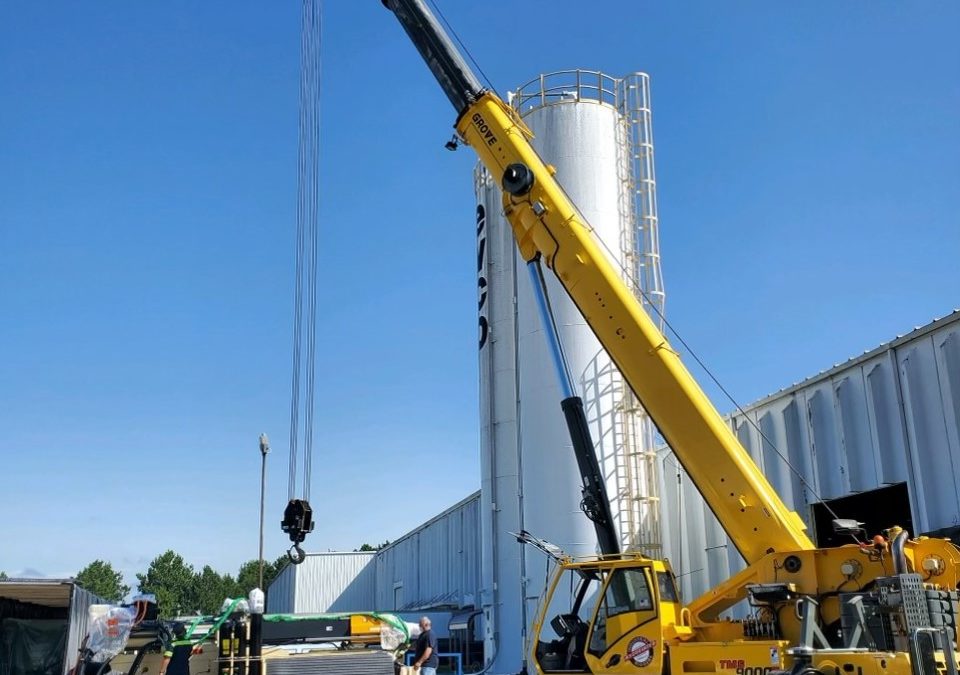Important Factors When Renting A Crane
Cranes have a long history dating back to the ancient Greeks in 515 BC. In those days, they were mostly used for water irrigation. It was during the Industrial Revolution that cranes became an integrate part of commercialization and specifically industrialization. With the invention of automation, cranes became one of the most important pieces in the construction industry and is still one of the most critical components of today’s construction sites.
There are almost a dozen different types of cranes that can be found on any construction site. Understanding the difference between today’s machines and resources can help you figure out what to use on your next project, how to estimate a budget and what to look for when selecting a crane rental company.
Types of Cranes
There are basically two categories of cranes, mobile cranes, and fixed cranes. Mobile cranes, as the name implies move from site to site. Some of the mobile cranes are fully self-sufficient and can be driven on the highway. Their ability to navigate to/from a jobsite and on the jobsite to different lifts makes the mobile cranes extremely popular. Fixed cranes are typically trucked into a site and setup for a long project. Once set in place, they are not easily moved on the construction site. But what they lack in mobility, they often make up for in strength as these cranes can lift heavier loads and reach greater heights.
Associated Industrial Riggers Corp (AIR), because of the consistent and majority of jobs in our service regions, has invested in mobile cranes over the years. Currently, our services include carry deck cranes, rough terrain cranes and truck mounted cranes. The following is an overview of AIR’s crane services.
Carry Deck Crane – This crane is ideal and one of our most utilized cranes inside plants. Most recently we have used it in assembling conveyance systems, installing generators in data centers, setting transformers for a variety of customers, and on numerous machine installs.
Rough Terrain Crane – As the name implies, sometimes you must work on sites where the terrain is challenging, and this crane is built to withstand the mud, hills, and challenging landscapes.
Truck Mounted Cranes – This crane is mostly used on heavier lifts. It is also perfectly suited for jobs with longer travel times. Once on site, the ease of setup and operation makes this crane one of the most used.
Safety and Cranes
When working with a crane on a job site, THE MOST IMPORTANT element of the service is knowing that your operator and the equipment are safe. Cranes are made to lift and move heavy equipment. That kind of work inherently brings risks to expensive equipment and the well-being of all employees on site.
The most recent data on crane accidents from the Bureau of Labor Statistics reports that on average 80 lift and material handling equipment workers are killed each year and most crane accidents result in serious injury or death. Additionally, the report says 90% of crane accidents occur due to human error, and 80% of all crane upsets are attributed to operators exceeding the crane’s operational capacity. (https://ilt.safetynow.com/crane-safety-stats-and-facts/)
As you search for a crane service, it is vitally important you ask about inspections, equipment maintenance and credentials. Here is a short list of the questions you need to ask. What are your restrictions? Can I see your annual inspection? Are daily inspections being done? What is your EMR? What are the operator’s credentials – are they certified? When was the last time a wire rope inspection was completed?
Select a company that knows the history and maintenance records of the equipment.
At AIR, our crane team is experienced and certified. We require daily inspections and our Safety EMR is .79. This score is especially important! A low (preferably under 1.0) EMR of a company reflects their consistent projects with no injuries or safety violations.
Pricing a Crane Rental
Cranes are typically priced by the day. You should expect to pay a standard mobilization charge and an hourly rate. Pricing varies depending on the job specifications, weight of the load and radius of crane.
Crane Specialists
Choosing the right company to supply your crane includes more than renting the basic equipment. Many of the machines can do the same or similar jobs. In addition to understanding what each piece can do, the most important part of renting a crane is selecting the right crane specialist to work with you. Hire someone that can help you with the right solution for your project. In many ways, you pay for that expertise more than the actual crane rental! It is especially important you get the right crane, with the right capacity for your project. Working with the right specialist can make a big difference in your budget and the overall success of the job.
Most recently, we purchased new cranes and increased our staff at our Georgia location. Recent hire Wayne Cummins, VP of Cranes, has over 36 years specializing in the crane industry. Wayne, “The Crane King of The South” as we call him, is one of 2-3 crane specialists that is repeatedly called upon to consult on the most unique and complex situations. In his 36 years, Wayne has worked in foundries, paper mills, concrete plants, steel mills, food plants, and auto manufacturing facilities. Without a doubt, he is one of the most experienced and highly regarded crane specialists in the United States.
Associated Industrial Riggers welcomes the opportunity to provide a crane quote on your next project. As the younger generation of crane operators are learning the ropes, it is essential that you hire a company that places emphasis on safety and experience.

